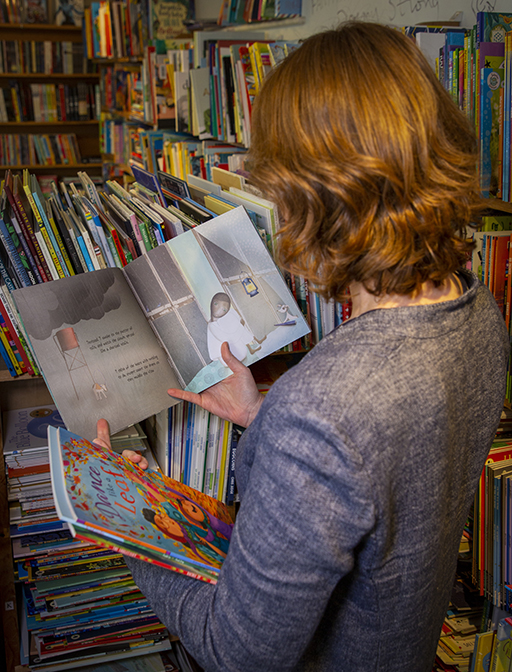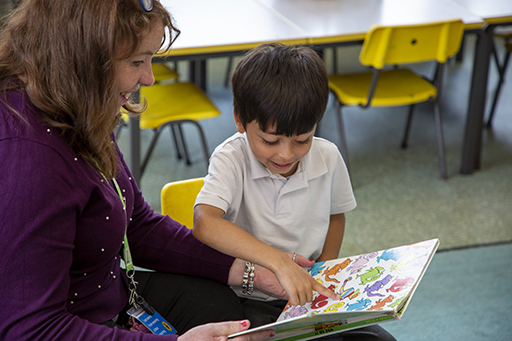6.3 Developing your knowledge of children’s texts
In addition to developing positive reader-to-reader relationships with children, as a Reading Teacher you should have a well-developed knowledge of children’s literature and other texts. A Reading Teacher’s repertoire will include the works of celebrity authors and classical children’s literature, but you will also have a good knowledge of contemporary children’s books, comics and magazine series and online texts. Whilst new technologies and wider access offers children greater choice, they will not necessarily find appropriate texts without your support and expertise.

As you develop your subject knowledge, you will find that you can engage in deeper, reciprocal interactions with children around texts. You will quickly find that you know texts that might help support a child who is living through difficult life circumstances, supporting them to recognise that others have felt what they feel and experienced what they are living through. Be aware though that this is not about being on a ‘Reading Teacher pedestal’, but simply being a thoughtful, authentic and interactive reading role model.
You will also be able to recommend books and authors which will help children to ‘catch the reading bug’. Reading Teachers are uniquely placed because:
To be able to put the right book in the right child’s hands at the right moment can change a child’s relationship with reading forever.

As your knowledge of children’s texts expands, you will be able to introduce children to stories told by a wider, more diverse range of authors, encouraging them to embrace plurality and multiple different ways of knowing the world. You can offer children texts which challenge stereotypes and counter racism, sexism, ableism and heteronormativity in society.
It is, of course, a genuine challenge for many busy educators to find time to expand their repertoires of children’s literature and other texts, and it is something which requires passion and commitment. However, there are steps you can take to fuel your journey, such as:
- Set a personal reading goal. For example, you might commit to reading a poem a day for a fortnight or buy a different children’s magazine every month.
- Read around a theme or topic (e.g. refugees or empathy).
- Read books that have won, or been shortlisted for children’s book awards [Tip: hold Ctrl and click a link to open it in a new tab. (Hide tip)] .
- Ask children to recommend books for you to read.
- Run a monthly staff book club where staff share recommendations.
Making a commitment to getting to know children as readers and expanding your subject knowledge is a key ingredient to cultivating an ethos of Reading for Pleasure in your classroom and beyond.
